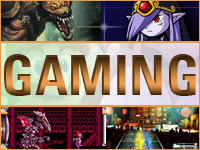
U.S. sales of gaming hardware, software and accessories experienced a slump in the month of June with such transactions down by 6 percent compared to a year earlier, to US$1.1 billion, according to NPD Group.
Within that category, hardware — in particular, Microsoft’s Xbox 360 and Sony’s PlayStation 3 — showed signs of growth, posting a 5 percent increase, for $401.7 million in sales. Software, though, contracted by 15 percent to $531.3 million.
NPD did not return a call from the E-Commerce Times.
Diverging Directions
It is unusual for software sales to drop while hardware sales increase, said Pietro Macchiarella, an analyst with Parks Associates.
“That discrepancy tells us this is not because of the recession,” he told the E-Commerce Times. “Otherwise, they both would be moving in the same direction — down.”
Rather, the drop in software sales is due in large part to other trends in the gaming sector, said Macchiarella.
These include a trend toward games that have become more complex and involved, and that take longer to play — which means consumers are inclined to buy fewer of them. That, coupled with fewer releases, accounts for much of the drop in sales, he said.
Also, the hardware figures might have been goosed by new consoles coming to market. Last month, for example, Microsoft released an updated Xbox with a larger hard drive, Macchiarella noted.
Second Half
Total industry sales for the year through the end of June reached $6.66 billion — a 9 percent drop compared with the same six-month period last year, according to NPD.
However, the year could close out having posted some $20 billion in sales, the research firm projects — an assessment with which Macchiarella agrees.
“This is a seasonal industry, so I think the second half of the year will definitely see some improvement,” he said, adding that new product releases such as PlayStation Move and Microsoft Kinect will attract more sales.
Bullish Outlook
It would be a mistake to judge the entire universe of gaming based on NPD’s figures, Jon Peddie of Jon Peddie Research told the E-Commerce Times.
For starters, NPD only covers the U.S., he noted.
Its main focus is on retail sales, Peddie added, noting that NPD has a difficult time capturing the online sales piece of the market.
“The point is, they are only looking at a tiny piece of the market,” he stressed.
The gaming market is very robust now because of the multiple platforms and the sharp rise in casual and social gamers, argued Peddie.
“There has been a huge increase in casual gamers,” he observed. “Also, other platforms have created incredible opportunities for dozens of boutique independent developers who are getting some traction.”














































Social Media
See all Social Media